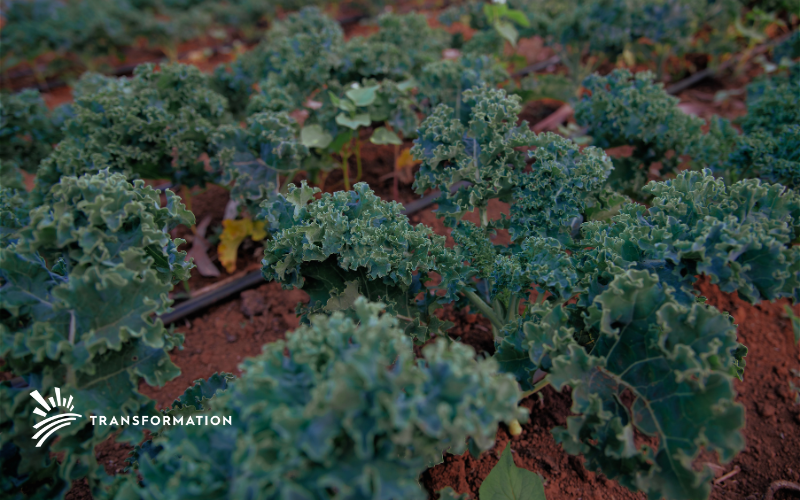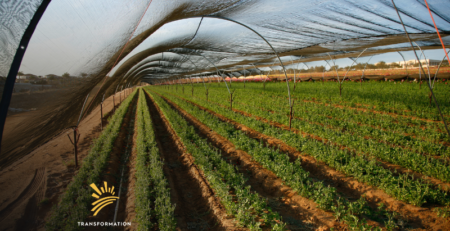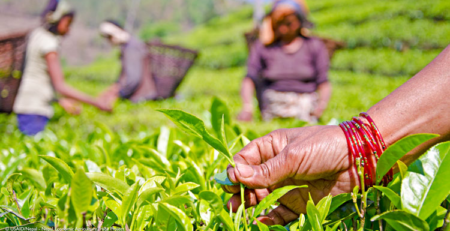What Does Organic Really Mean in the Food and Farming Industries?
Stroll down any supermarket aisle or read a food ad, and you’ll notice the emergence of products that are labeled organic. Where these types of labels used to only appear in health food stores or the local farmer’s market, you’ll see this descriptor popping up online, in print, and on the shelves of nearly any store that sells some type of food product.
It’s even made its way onto labels for products like cosmetics and clothing. Unfortunately, that label sometimes comes with a higher price which makes purchasing such products out of reach for many.
So, is “organic” simply a meaningless marketing term, or does it have some validity and value as a legitimate, sustainable agricultural practice?
What is Organic Farming?
Technically, all food could be said to be organically grown. According to Merriam-Webster, the word itself simply means “a(1): of, relating to, or derived from living organisms.”
In that context, you could also call many non-edible products organic, and that label is growing too, in the cosmetic, textile, and even construction industries.
However, the second part of that definition states that organic also means “(2): relating to, yielding, dealing in, or involving the use of food produced with the use of feed or fertilizer of plant or animal origin without employment of chemically formulated fertilizers, growth stimulants, antibiotics, or pesticides. organic stores.”
And that is true, for the most part.
In order for a product, be it food or cotton fabric, to have organic certification, it must meet certain criteria set by the US Department of Agriculture and the Food and Drug Administration (FDA), including:
- Oversight by a USDA NOP-authorized certifying agent
- Production without prohibited elements like genetic engineering, ionizing radiation, or sewage sludge
- Production with allowable substances and methods according to the national list
These requirements cover not only crops but also how livestock is raised for food production and how food products are handled during processing and delivery.
For example, any food products must be produced and processed using non-synthetic, natural substances unless such substances are specifically allowed or prohibited under FDA guidelines. They must also be inspected on-site by an organic-certified agent.
- Prohibited substances include:
- Genetically modified ingredients
- Antibiotics and hormones
- Irradiation or ionizing radiation
- Synthetic pesticides and pesticide residue
That leaves a pretty broad spectrum of products that may be organically produced in nature even when they aren’t labeled as such.
What Organic is NOT
Contrary to public opinion, organic foods are not pesticide- or herbicide-free. Organic farmers can use pesticides so long as they are naturally derived and non-synthetic. Also not organic are many of the products that state they’re organic without the receipts and USDA seal to prove it.
In order to gain that certification, the product must contain at least 95% organic ingredients. Any additional ingredients must be included on the FDA-approved national list. Water and salt are excluded from those requirements.
Organic farming doesn’t always mean that the food is coming from the small local farmer, either.
There are large farming corporations that also engage in organic farming practices. Even some national brands have read the room and begun offering GMO, antibiotic, and hormone-free options, albeit at a higher price than their less ethically sourced and nutritious offerings.
However, buying from small local operations is a more sustainable option that also allows you to support your community in a meaningful way.
Organic Farming Practices
Organic farming is a method of farming that avoids the use of synthetic pesticides, herbicides, and fertilizers. Instead, organic farmers rely on natural processes to manage pests and diseases, including:
- Crop rotation
- Companion cropping
- Cover cropping
- Biological pest control
Organic agriculture also prioritizes soil health by using techniques like composting and deploying natural fertilizers to maintain soil fertility. This, in turn, protects the groundwater and mitigates soil erosion and nutrient depletion. Composting involves using organic waste, such as food scraps and yard waste, to create nutrient-rich soil.
Crop rotation is a practice that has been around since the advent of organized farming for more than just personal or family food security. It involves planting different crops in a specific order to maintain soil health and prevent pests and diseases. Companion planting differs in that crops are grouped in a specific way that encourages biodiversity and discourages the pest and disease infestations that destroy crops.
For example, marigolds and tomatoes make great companion crops because the scent of these flowers is a deterrent to whiteflies, which are very harmful to tomato plants.
This method can also aid with cross-pollination. But, farmers need to know which plants make good partners and which can initiate mutual destruction. It’s believed that certain plants emit chemical messengers that actually harm other plants.
The practice of cover cropping involves planting a cover crop, such as clover or rye, to protect unfarmed soil from erosion and improve soil health. Healthy, sustainable farms also mean healthier livestock and communities.
Using green technology, farmers can monitor plant and soil health and optimize the supply chain from farm to fork. This would not only make it easier to implement organic farming best practices on a broader scale, but it would also make organic food products cheaper and more widely available.
The Use of Pesticides in Organic Farming
According to a study conducted by the UK organic accreditation body, Soil Association, 95% of respondents cited lack of pesticide use as their main reason for going organic. Contrary to this belief, organic does not mean pesticide-free. It means that harmful, toxic synthetic ingredients aren’t used to control pests and invasive plant species.
What differentiates organic fruits and vegetables from those grown via conventional agriculture is not the lack of pesticides and herbicides, but the kind of products that are used to protect crops. Natural pest control involves using natural predators, such as ladybugs and birds, to control pests.
However, there are more than 20 substances that are approved by the FDA for use in organic systems. These include copper and sulfur, which are deployed as fungicides.
The Benefits of Organic Food Production
Organic farming offers many benefits that go beyond healthier food that’s free from toxic chemicals and genetic alterations. Such practices combat climate change and soil degradation by promoting soil health, reducing greenhouse gas emissions, and conserving water. Farming practices like cover cropping and composting promote soil health and help to reduce soil erosion.
Since organic farming avoids the use of synthetic fertilizers that contribute to greenhouse gas emissions, such farming methods help combat climate change. Organic farming also promotes the conservation of water because many of the farmers rely on natural rainfall rather than irrigation.
Eating organic meats and produce also means eating something that looks and tastes better. They’re better for you, too.
Despite the perception - as well as claims by people with a vested interest in keeping the status quo - organic farming is not more expensive than traditional agriculture, nor is it too small to feed the masses, which was a justification for everything from large-scale factory farming to GMOs. In fact, I might argue that food production is actually more cost-effective because natural fertilizers and compost are cheaper than buying a bunch of lab-created farming aids.
The higher price of items with organic food labels at the supermarket could be chalked up to marketing or lack of availability in remote areas.
Final Thoughts
As you can see, the benefits of organic farming far outweigh any disadvantages. Even the prohibiting factor of the cost could be mitigated as tech innovations emerge and organic food becomes more plentiful and cost-effective to produce. Already, I’ve noticed more foods in supermarkets, online shops, and eateries being certified organic.
Whether you’re passionate about environmental issues or you just want to learn more about sustainability, this blog is designed to educate and inspire action.




Leave a Reply